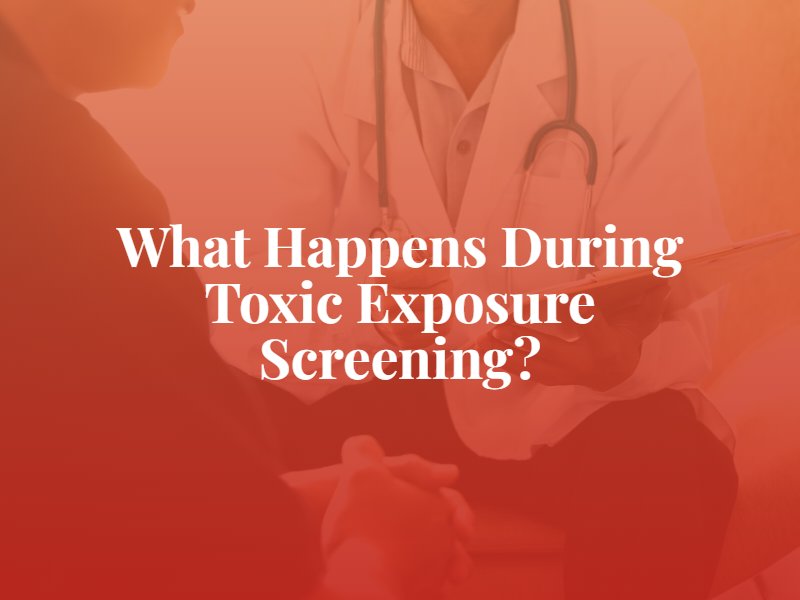
The United States military has long been regarded for its bravery and sacrifice. However, the dangers faced by our service members extend far beyond the battlefield. For many veterans, the effects of toxic exposures during their service have become a harsh reality that continues to affect their health and well-being long after their time in the military has ended.
Recognizing the significant impact of toxic exposures on veterans’ health, the U.S. Department of Veterans Affairs (VA) has implemented policies to combat this issue. As part of The Sergeant First Class Heath Robinson Honoring our Promise to Address Comprehensive Toxics (PACT) Act, the VA now screens all of its patients for possible exposure to environmental hazards during their military service, which was also renewed by the Honoring Our PACT Act of 2022.
How Veterans Are Affected by Toxic Exposures
Many service members have been exposed to a range of environmental hazards during their time in the military, resulting in long-lasting health effects that persist long after their active duty ends. Cancer, reproductive health problems, respiratory issues, and even death have occurred among veterans who encountered these dangerous substances.
Below are a few examples of toxic exposures faced by veterans:
- Agent Orange: This herbicide was sprayed by the U.S. military during the Vietnam War to remove dense jungle vegetation. It contained dioxin, a highly toxic chemical linked to a wide range of health conditions. Many veterans helped apply this herbicide or were exposed to it during their service.
- Burn Pits: In Iraq and Afghanistan, burn pits were widely used to dispose of waste. Various materials, including plastic, chemicals, and medical waste, were burned in open-air pits. The smoke and toxins released from these burn pits exposed veterans to hazardous substances and caused them to develop serious health conditions.
- Water Contamination at Camp Lejeune: For decades, the water supply at Camp Lejeune, a U.S. Marine Corps base in North Carolina, was contaminated with industrial solvents. Veterans and their families who lived there have experienced higher rates of cancer, reproductive disorders, and other health conditions due to prolonged exposure.
Toxic Exposure Screening: A New Policy Under the PACT Act
Toxic exposure is a major health risk for military veterans, and they deserve support to help them recover from any conditions that they develop as a result. Because it can be difficult to establish a link between military-related toxic exposures and serious health conditions, the VA has a list of conditions that are presumed to be caused by military service.
The PACT Act expands the list of presumptive conditions for veterans of the Vietnam, Gulf War, and post-9/11 eras. As a result, more veterans are eligible for benefits to help pay for medical care, rehabilitation, and other expenses that they may incur.
To comply with PACT Act requirements, the VA now screens every patient for potential exposure to toxic substances during their military service. The results of the screenings are kept in the veterans’ health records. The VA will perform the toxic exposure screening every five years.
What Happens During Toxic Exposure Screening?
To assess the veteran’s risk for toxic exposure, his or her primary care physician will ask a series of three questions. By conducting this 5-minute screening, the VA can better estimate the number of veterans at risk for serious illnesses and help them obtain the care that they need.
- Question #1: Do you believe that you experienced toxic exposures, such as open burn pits/airborne hazards, Gulf War-related exposures, Agent Orange, radiation, contaminated water at Camp Lejeune, or other such exposures while serving in the Armed Forces?
- Question #2: If yes, do you believe you were exposed to any of the following while serving in the Armed Forces?
- Open burn pits/airborne hazards
- Gulf War-related exposures
- Agent Orange
- Radiation
- Contaminated water at Camp Lejeune
- Other exposures
- Question #3: Does the veteran or caregiver have any follow-up questions regarding health/medical care, benefits/claims, VA health care enrollment and eligibility, registry, or another area?
Recovering VA Benefits for Conditions Caused by Toxic Exposures
Toxic exposures during military service can have severe and long-lasting consequences on a veteran’s health. From debilitating physical ailments to chronic illnesses and mental health disorders, these conditions can significantly impact a veteran’s quality of life. In these situations, a veteran may pursue benefits through the VA health care system.
To initiate the VA claim process, veterans need to establish a connection between their military service and the toxic exposure that led to their health condition. This involves providing documentation, such as service records, medical records, and any relevant evidence linking the exposure to the claimed condition. It is essential to gather as much information as possible to support the claim and demonstrate a relationship between exposure and subsequent health issues.
The VA has established a list of presumptive conditions associated with certain toxic exposures, simplifying the process for veterans with these specific illnesses. This means that the VA presumes a causal relationship between the exposure and the condition, eliminating the need for veterans to prove the connection themselves.
Once the evidence is compiled and a claim is submitted, the VA will evaluate the case through their claims adjudication process. This may involve examinations by VA medical professionals or review by subject matter experts. If the claim is approved, veterans may begin to receive benefits to help pay for their medical expenses, disability accommodations, and other losses.
Do You Need an Attorney’s Assistance for a PACT Act Claim?
Navigating the complexities of the VA benefits system can be daunting, especially when dealing with the effects of toxic exposures. When pursuing legal action under the PACT Act, the process can be even more challenging. In these situations, veterans need an advocate on their side who can support their claim.
Given the specific evidence requirements, legal complexities, and potential appeals, seeking the assistance of a lawyer can improve your chances of a successful claim. An attorney specializing in VA benefits claims can provide valuable advice and support, guide you through each step of the process, gather evidence, and advocate for your rights each step of the way.
As soon as possible following your diagnosis, schedule a free consultation to discuss your case with a PACT Act and Camp Lejeune water contamination lawyer and plan your next steps.

